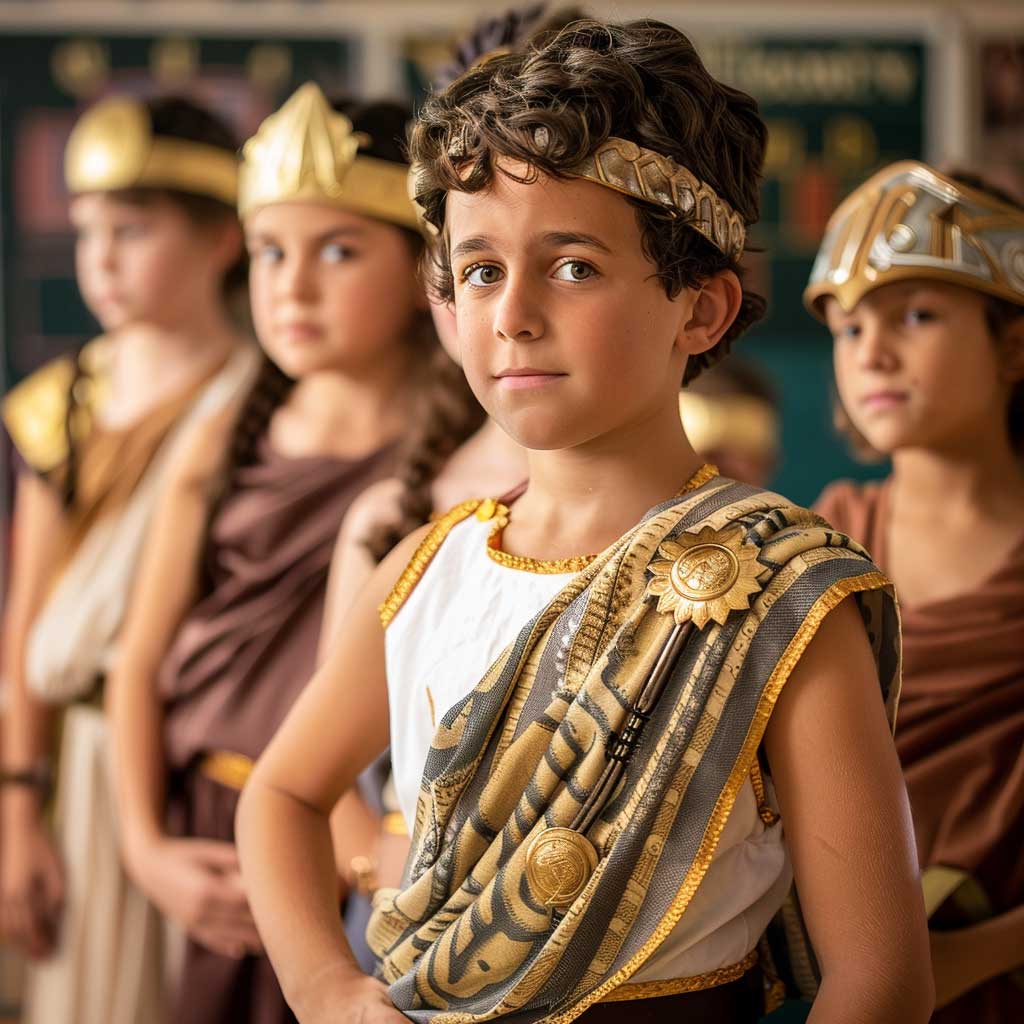Enhancing Learning Through Role-Playing

In education, it’s crucial to blend theory with practice. Role-playing is an effective strategy that strikes this balance. By simulating real-life situations or historical events, it engages students actively. It also encourages critical thinking and helps them understand different viewpoints. This teaching strategy is beneficial in both traditional classrooms and homeschool settings, as it can greatly improve the learning experience.
Understanding Role-Playing
Role-playing lets students take on specific roles in a scenario and interact as if they are those characters. This method goes beyond standard lectures by immersing students in hands-on learning. They get to see various perspectives, develop empathy, and improve their problem-solving skills.
Encouraging Empathy and Perspective-Taking
Role-playing helps students step into the mindset of different characters, which fosters empathy and opens their minds to new viewpoints. For example, in a historical reenactment, students can represent figures from various social backgrounds. This experience gives them a deeper understanding of people’s lives in different times and enhances their appreciation for history’s complexities.
Applying Theoretical Knowledge in Practical Contexts
Role-playing connects theoretical concepts to real-life situations. In a literature class, students might act out scenes from a book. This helps them analyze motivations, conflicts, and themes in a direct way. Such active involvement deepens their understanding of theoretical concepts and their relevance. Let’s look at some examples.
In history lessons, role-playing can bring past events to life. Students may take on the roles of historical figures during significant events. For example, they might reenact the signing of the Declaration of Independence, allowing them to explore the motivations and conflicts of the founding fathers. This active participation helps students grasp complex historical concepts and understand the human emotions involved in historical decisions.
English classes benefit greatly from role-playing, especially in literature studies. Students might act out scenes from a novel or play, adopting the personas of different characters. This strategy helps them analyze character motivations and understand literary themes more deeply. As a result, students can engage more critically with the text and enhance their interpretative skills.
Science classes use role-playing to explore complex theories and principles. Students could simulate a scientific conference where they present arguments for or against theories like climate change. This format encourages students to research deeply, understand various perspectives, and defend their viewpoints scientifically. It also fosters a hands-on understanding of scientific methods and controversies.
Enhancing Communication and Collaboration Skills
Role-playing demands effective communication and teamwork among students. They must negotiate and work together to reach common goals. These skills are essential in both school and the workplace. Additionally, this teaching strategy boosts students’ confidence in expressing themselves and defending their views, which is crucial for successful discussions and civic involvement.
Adapting for Different Learning Environments
Role-playing can be customized for various educational settings, including traditional classrooms and homeschools.
In a Classroom Setting
In classrooms, teachers can use role-playing in activities like debates or simulations. They provide materials, guidance, and feedback to help students learn effectively and gain valuable insights.
In a Homeschool Setting
In homeschooling, role-playing offers a dynamic way to learn. Parents can create scenarios that align with their educational goals using resources like historical fiction or scientific studies. This teaching strategy can fit into lesson plans or co-op groups, making learning interactive and engaging.
To Sum Everything Up
Role-playing is a powerful tool that links theory with real-world practice and builds empathy, critical thinking, and communication skills. Whether in a classroom or a homeschool, it enhances learning by allowing students to explore different perspectives and apply their knowledge effectively. By adopting this strategy, educators and parents can create a lively and effective learning environment that prepares students for future challenges.
